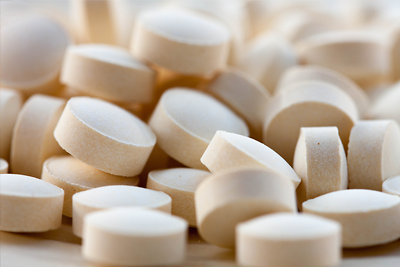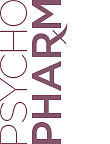There are only two FDA-approved medications for autism spectrum disorder (ASD), and both—risperidone and aripiprazole—target only secondary symptoms like irritability.
A
study published in October in
Molecular Psychiatry suggests that children who take a high dose of folinic acid (a form of folate) daily may experience improvements in verbal communication, a core symptom of ASD.
Folate is known to play a role in proper neural development during pregnancy, and some recent population studies have suggested that supplementation of folate during pregnancy may reduce the risk of autism in addition to other neurological defects in offspring.
Defects in the folate receptor alpha (FRα) hinder folate transport to the brain, a condition known as cerebral folate deficiency that is found in some neurodevelopmental disorders. Folinic acid can move readily cross the blood-brain barrier without the aid of transporters and circumvent FRα problems.
To determine the effects of folinic acid on ASD symptoms, Richard Frye, M.D., Ph.D., an associate professor of pediatrics at the Arkansas Children’s Hospital, and his colleagues randomized 48 children (average age of 7) to receive either a high daily dose (up to 50 mg/day) of folinic acid or placebo for 12 weeks.
“In addition to the fact that it can get into the central nervous system, we chose folinic acid since it has been used to treat some rare neurologic disorders brought on by severe folate deficiency,” Frye told Psychiatric News. “It has also been used for decades as a protective agent in chemotherapy, so we know it can be well-tolerated at higher doses.”
All the participants in the study had non-syndromic ASD (where the autism is not secondary to another condition like Rett syndrome or Fragile X syndrome) and demonstrated language impairment. Blood tests also screened for the presence of FRα antibodies (FRAA)—a signal for dysfunctional folate transport that is common in children with ASD. Verbal skills were measured using standardized, age-appropriate tests like the Clinical Evaluation of Language Fundamentals (CLEF) Preschool-2, CLEF-4, and Preschool Language Scale-5.
At the end of the 12 weeks, the children taking folinic acid showed significantly greater improvements in their verbal communication compared with placebo. Those taking folinic acid improved by about 5.7 points more on average than those in the placebo group, which Frye noted is considered to be a clinically meaningful improvement. Among the children taking folinic acid, those who tested positive for FRAA improved by 7.3 points on average.
Frye told Psychiatric News that the improvements were evident across all age groups, regardless of whether the children were younger and forming their first sentences or older and beginning to use more complex language structure.
Several secondary outcomes were also tested using multiple clinical scales and parent/teacher questionnaires. Among clinically-measured outcomes, only daily living skills showed a significant improvement in the folinic acid group; however, parents reported greater improvements in all behaviors listed in the Aberrant Behavior Checklist (irritability, lethargy, hyperactivity, inappropriate speech, and stereotypic behavior) in the folinic acid group relative to the placebo group. There were no serious adverse events reported in either the folinic acid or placebo group.
Frye said that he believes these findings could represent a significant breakthrough in pharmacological ASD treatment.
“We are not just treating symptoms,” he said. “We are targeting an abnormal metabolic pathway and may be helping the brain and body repair some of the underlying biology that is involved in autism.”
Antonio Hardan, M.D., a child and adolescent psychiatrist at Stanford University School of Medicine, told Psychiatric News that studies like this are critical to help patients navigate the crowded arena of supplements that claim to improve ASD symptoms.
“There are probably over 1,000 interventions out there, and most have no scientific evidence of efficacy or safety,” said Hardan, who heads Stanford’s Autism and Developmental Disabilities Clinic.
The findings of Frye’s randomized, controlled trial together with a previous
open-label study suggest that folinic acid may help patients with ASD, Hardan noted.
“What is also very helpful is that the researchers are already looking for predictors of response, which is needed for a heterogeneous disorder like ASD.” He added that confirming folinic acid efficacy in a large, multisite trial is important.
Frye and his colleagues are already planning such a trial. “As for now, I do think folinic acid is safe enough that a therapeutic dose could be prescribed off-label for a child with communication problems, so long as careful follow-up assessments are done,” Frye said. He noted that the high dose used in the study is available only by prescription, which is different than over-the-counter folate capsules.
“You can purchase reduced folinic acid, but those capsules are usually 400 or 800 micrograms each,” he said. “A child would have to consume a bottle of supplements a day, which is not safe.”
This study was supported by Autism Speaks, the Autism Research Institute, Brenen Hornstein Autism Research and Education Foundation, Fraternal Order of Eagles, Jane Botsford Johnson Foundation, and Lee Silsby Compounding Pharmacy. ■

